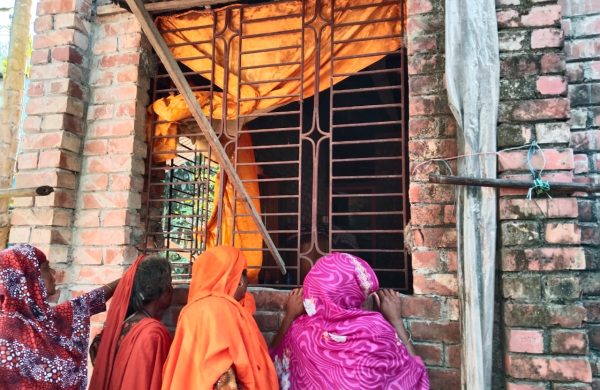Budget of FY2026: CMSME and Realities
- Update Time : Sunday, June 29, 2025

—Dr AKM Asaduzzaman Patwary—
The FY2025–26 national budget of Tk7.90 trillion is positioned as equitable and pragmatic, focusing on fiscal discipline and climate resilience. It targets Tk2.30 trillion for development and Tk5.64 trillion in revenue, with a deficit of Tk2.26 trillion (3.6% of GDP). The private sector plays a crucial role in the economy with CMSMEs, the lifeblood of economic activity. However, despite their significant roles, the budget does not outline any dedicated allocation for SMEs, raising concerns about the level of support for this vital sector to contribute to inclusive and sustainable growth.
As a whole, this budget aims low GDP growth and private investment. The SME development did not receive any sizable budget, despite a 32.9% rise from the revised allocation for the Ministry of industries in FY2025. Amid inflation and economic strain, such budget further weakens the sector. The budget outlines a few initiatives for the SME sector, such as creation of 15,000 new entrepreneurs over three years, training 25,000 entrepreneurs, organising product fairs, updating cluster mapping, and distributing Tk1,000 crore loan among 10,000 marginal CMSME entrepreneurs. It also introduces incentives for timely loan repayment and mandates that lending institutions allocate at least 15% of their portfolios to women entrepreneurs. These measures are largely continuation of previous commitments and fall short of addressing the structural constraints and policy inconsistencies that undermine SME growth.
The budget’s fiscal and regulatory decisions may create new burdens for MSMEs. The changes: the reduction of VAT exemption threshold from Tk50 lakh to Tk30 lakh, and turnover tax threshold from Tk3 crore to just Tk50 lakh, will force more small businesses into the tax net, often without the capacity or compliance infrastructure to manage complex filing and tax compliance. The advance tax on commercial raw material imports has also been increased to 7.5%, while these businesses are excluded from claiming input tax credit. Furthermore, VAT law amendments are highly technical and dense, making it harder for small businesses to comply without professional help.
Some positive measures have been introduced in the budget. However, the announced Tk.1 billion start-up fund is questionable in impact given the under-utilisation of an existing Tk.50 billion start-up refinancing fund launched in 2020, of which only small pie has been disbursed. Compliance procedure has also been eased, proof of return filing is no longer required for 45 services and TIN certificate suffices for accessing 12 of them. Moreover, the budget is silent on pressing issues for export-oriented SMEs, including lack of guidance on non-tariff barriers, declining agro-based growth and inadequate support for agro-processing sector. Additionally, the government has postponed the third phase of withdrawing export incentives tied to LDC graduation. The SME development efforts are further weakened in the context of current global volatility. The ongoing Middle East crisis is likely to fuel energy price hike, which may exacerbate input costs for small businesses, particularly those already facing power shortages and unreliable grid access. Despite this looming threat, the budget offers no energy subsidies or green financing options to help SMEs adopt cost-saving renewable energy solutions, such as rooftop solar. As Bangladesh approaches LDC graduation, the need for SMEs to modernise their production standards, ensure compliance with international regulations and adapt to new trade norms is urgent. Yet, the budget remains lax on SMEs support in upgrading certifications, adopting clean technologies or participating in global value chains.
It is worth noting that while 9 million CMSMEs are officially recognised, a vast number of micro, cottage and small enterprises continue to operate informally. These informal units remain largely excluded from budgetary recognition and support. Persistent challenges, such as limited access to finance, high collateral requirements and exclusion from formal tax and credit systems, continue to hinder their growth. Without addressing these structural barriers, the goals of inclusive growth and industrial diversification will remain elusive. Fiscal policy is to prioritise this informal segment to drive employment, innovation and significant growth.
To make SME support more meaningful, several steps are critical. The government should restore the previous VAT and turnover tax thresholds, and exempt SMEs from Advance Income Tax (AIT) and Advance VAT. Introducing a revenue-based repayment model, particularly for women-led SMEs, could improve access to finance, the key concern of MSMEs in Bangladesh. Budget allocations should support implementation of targets of SME Policy 2025, addressing past gaps in financial inclusion, innovation support, digitisation and monitoring found in the 2019 policy. Establishing a dedicated SME guarantee fund for micro and small firms with low collateral, offering energy transition subsidies and increasing NBR funding to provide grass-root level tax related capacity building. Furthermore, the Bangladesh Competition Commission may be empowered to safeguard SMEs from anti-competitive practices in the growing market.
While the FY2025–26 budget makes some efforts that somewhat leverage SMEs, it ultimately falls short of delivering a cohesive, inclusive and forward-looking policy framework. The outcome of aggregate moves related to SME development may not immensely commensurate this huge sector. Incremental steps such as limited tax adjustments and targeted incentives are welcome but insufficient in the face of the sector’s deep-rooted structural challenges. Without substantial simplification of tax compliance, expanded fiscal space for micro and informal enterprises, access to affordable finance, affordable energy, and robust export readiness support, the budget risks further marginalising a sector that contributes significantly to employment, innovation, and creates economic activity. The over-dependence on banking sector for deficit budget also creates concern for this resource constrained sector in this vulnerable economic context. In the turbulent global and LDC graduation led transitional time, SMEs require more focused supports and enabling ecosystem backed by policy consistency, institutional capacity, and inclusive financing mechanisms aligning with timely monetary policy. If a revised budget is considered, it is imperative to declare a clear road map for building a friendly business environment with healthy resource allocation and for this vital sector considering the relentless SME led economic journey ahead.
———————————————————————————
The writer is a macroeconomic analyst and policy researcher



















